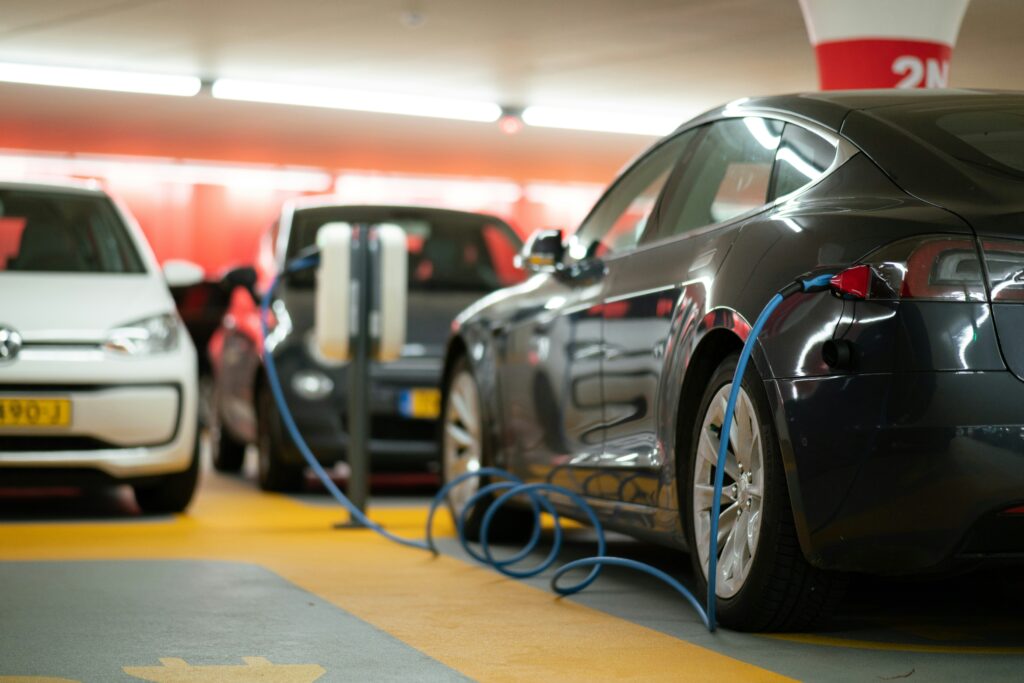Washington’s recent tariffs against Chinese products all but ensure a flood of these exports to Europe, necessitating a response from Brussels. The products include China’s “new three” cleantech exports—lithium-ion batteries, electric vehicles (EVs), and solar panels—posing undeniable dilemmas for Brussels as it balances security, economic, and climate interests. To head off a deluge of Chinese products while also allowing some to support decarbonization goals, Brussels should selectively and thoughtfully apply greater tariffs and restrictions. Concurrently, European industrial policy should prioritize the development of indigenous battery and EV supply chains and manufacturing capacity.
STAY CONNECTED
Sign up for PowerPlay, the Atlantic Council’s bimonthly newsletter keeping you up to date on all facets of the energy transition.
The European Union’s imports of the new-three cleantech export categories have skyrocketed in recent years. Over the course of 2023, China’s exports to the EU totaled $23.3 billion for lithium-ion batteries, $19.1 billion in solar panels, and $14.5 billion for electric vehicles.
Sources: PRC General Administration of Customs, Author’s Calculations
Europe’s imports of these cleantech products have fallen in recent months, partly because of the global glut in solar panels and constraints on installations. The EU’s anti-subsidy investigation into electric vehicles, launched in October, has also cooled shipments.
Europe’s most consequential tariff decisions concern EVs and batteries, as these products hold economic and strategic relevance.
With the automotive sector indirectly providing 6.1 percent of total EU employment and 7 percent of GDP turnover, EVs and batteries are a key future driver for the EU’s economy. This sector is at risk due to China’s heavily subsidized auto exports.
While transitioning to EVs from internal combustion engines will necessitate disruptions, ceding Europe’s auto industry would deliver a “second China shock” of mass economic dislocations, all but ensuring a fierce political blowback with potentially calamitous implications for the European project.
Reasonable people could disagree about the wisdom of allowing cheap Chinese imports to undercut domestic industries in the 1990s and 2000s. At the time, many believed that greater economic linkages between the West and China would produce rising living standards across the board, reduce geopolitical frictions, and potentially even lead to constructive political changes within China itself.
That didn’t happen. While trade with China led to complicated, often ambiguous impacts for Western economies, Beijing threatens global democracy more than ever, and the Communist Party continues to rule mainland China with an iron fist.
Recognizing this dynamic, various European Union bodies have characterized the Chinese government as a “systemic rival”—as well as a partner.
While European threat perceptions of Chinese exports largely center around economic and political concerns, security dimensions shouldn’t be overlooked.
China’s exports of sensor-laden connected vehicles pose potential espionage and sabotage risks. Chinese security services could use these vehicles to monitor European military and political facilities, as well as collect real-time economic and mobility data. In a worst-case scenario, these vehicles’ software systems would be vulnerable to hacking.
China’s lithium-ion battery complex also has latent military potential, as batteries are critical components for diesel-electric submarines, unmanned maritime platforms, and aerial drones. Moreover, technological advances in solid-state batteries could offer significant, potentially game-changing performance improvements for military use cases.
Given the economic and security risks, Europe should impose tariffs on Chinese exports of EVs and lithium-ion batteries. To balance decarbonization goals with these other needs, however, Europe could follow the US approach by phasing in certain tariffs, such as on Lithium-ion non-electrical vehicle batteries. These batteries are useful for grid decarbonization but pose few direct security threats.
China is unsubtly hinting it will respond to any European tariffs with countermeasures, including against wine and dairy exports.
Yet Europe is better off accepting short-term pain than allowing the formation of a clean energy cartel overseen by a systemic rival.
In other cases, such as solar panels, Chinese clean tech exports pose few economic and security risks to Europe. This industry has left Europe and isn’t coming back, especially since European solar potential is limited. Although inverters should be monitored closely, there are no known security risks for solar panels, which cannot communicate with the grid. Consequently, Europe should accept Chinese solar imports while still ensuring that global supply chains are not held hostage to a single supplier.
Importantly, the West should continue to emphasize to Beijing that it seeks to de-risk rather than decouple supply chains. While Western trade with China has not fundamentally improved ties, commercial ties nevertheless can provide ballast for the relationship, mitigate security dilemmas, and provide economic benefits.
To stop political ties from deteriorating further while maximizing trade and climate benefits, Europe and its partners should identify products where commerce can be conducted with China without damaging economic or security interests.
Still, Europe should rapidly employ tariffs and fiscal support to bolster critical industries and technologies, including EVs and batteries. Balancing decarbonization objectives with economic and security needs is no easy task, but Brussels must find sure footing on this tightrope, and quickly.
Joseph Webster is a senior fellow at the Atlantic Council and editor of the independent China-Russia Report. This article represents his own personal opinion.
MEET THE AUTHOR
RELATED CONTENT
OUR WORK


The Global Energy Center develops and promotes pragmatic and nonpartisan policy solutions designed to advance global energy security, enhance economic opportunity, and accelerate pathways to net-zero emissions.







